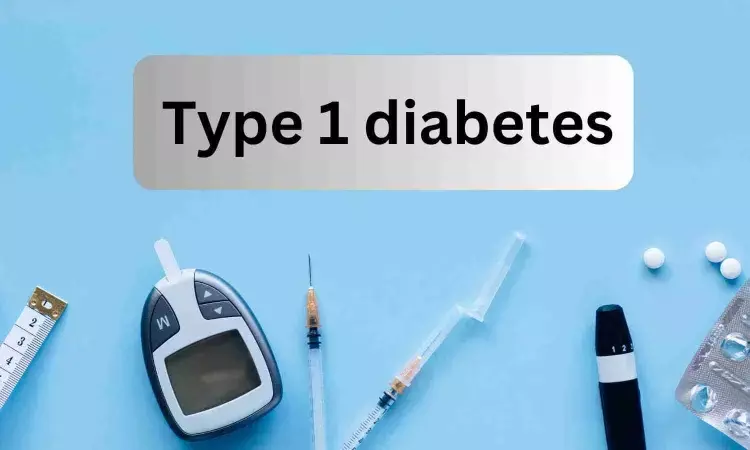- Home
- Medical news & Guidelines
- Anesthesiology
- Cardiology and CTVS
- Critical Care
- Dentistry
- Dermatology
- Diabetes and Endocrinology
- ENT
- Gastroenterology
- Medicine
- Nephrology
- Neurology
- Obstretics-Gynaecology
- Oncology
- Ophthalmology
- Orthopaedics
- Pediatrics-Neonatology
- Psychiatry
- Pulmonology
- Radiology
- Surgery
- Urology
- Laboratory Medicine
- Diet
- Nursing
- Paramedical
- Physiotherapy
- Health news
- Fact Check
- Bone Health Fact Check
- Brain Health Fact Check
- Cancer Related Fact Check
- Child Care Fact Check
- Dental and oral health fact check
- Diabetes and metabolic health fact check
- Diet and Nutrition Fact Check
- Eye and ENT Care Fact Check
- Fitness fact check
- Gut health fact check
- Heart health fact check
- Kidney health fact check
- Medical education fact check
- Men's health fact check
- Respiratory fact check
- Skin and hair care fact check
- Vaccine and Immunization fact check
- Women's health fact check
- AYUSH
- State News
- Andaman and Nicobar Islands
- Andhra Pradesh
- Arunachal Pradesh
- Assam
- Bihar
- Chandigarh
- Chattisgarh
- Dadra and Nagar Haveli
- Daman and Diu
- Delhi
- Goa
- Gujarat
- Haryana
- Himachal Pradesh
- Jammu & Kashmir
- Jharkhand
- Karnataka
- Kerala
- Ladakh
- Lakshadweep
- Madhya Pradesh
- Maharashtra
- Manipur
- Meghalaya
- Mizoram
- Nagaland
- Odisha
- Puducherry
- Punjab
- Rajasthan
- Sikkim
- Tamil Nadu
- Telangana
- Tripura
- Uttar Pradesh
- Uttrakhand
- West Bengal
- Medical Education
- Industry
Genetic Study Links Type 1 Diabetes with Autoimmune Liver Diseases, Confirms Causal Relationships: Study

China: A new genetic investigation published in Diabetology & Metabolic Syndrome has provided robust evidence for a causal link between type 1 diabetes (T1D) and certain autoimmune liver diseases (AILDs).
The research, conducted by Jie Yuan and colleagues from the Department of General Surgery, University-Town Hospital of Chongqing Medical University, sheds light on the complex interplay between autoimmune disorders and their shared pathogenic mechanisms.
Both T1D and AILDs, which include autoimmune hepatitis (AIH), primary biliary cholangitis (PBC), and primary sclerosing cholangitis (PSC), are immune-mediated conditions where the body’s defense system mistakenly targets its own tissues. Although observational studies had earlier indicated possible associations between T1D and liver-related autoimmune conditions, questions around whether these associations reflected true causal relationships remained unanswered.
To address this, the research team employed a bidirectional Mendelian randomization (MR) approach using large-scale genome-wide association study (GWAS) datasets. This genetic technique leverages inherited variants as proxies to evaluate causal effects while reducing confounding factors commonly seen in observational studies. The primary analysis was performed using inverse variance weighting, and the findings were cross-validated with multiple sensitivity tests, including MR-Egger, weighted median, MR-PRESSO, and colocalization analyses.
The study revealed the following findings:
- Genetic evidence showed that individuals with genetically predicted type 1 diabetes (T1D) had a 32% higher risk of developing autoimmune hepatitis (AIH) (OR 1.32).
- This association was consistent across multiple analytic methods and validated in an independent cohort.
- A two-way relationship was observed between T1D and primary biliary cholangitis (PBC): genetically predicted T1D increased the risk of PBC (OR 1.10), while genetically predicted PBC elevated the risk of T1D (OR 1.13).
- The reciprocal link suggests shared disease mechanisms, although pleiotropy could not be fully excluded.
- No genetic causal relationship was identified between T1D and primary sclerosing cholangitis (PSC), indicating variation across autoimmune liver disease subtypes.
- Despite significant genetic correlations between T1D and all three liver conditions, colocalization analyses did not confirm shared causal variants, suggesting distinct biological pathways may underlie these associations.
The authors emphasized that these findings refine current understanding of comorbidities in T1D. Clinicians managing patients with T1D may need to be more vigilant in screening for autoimmune hepatitis and primary biliary cholangitis, given the genetic evidence of elevated risk.
“The work highlights the importance of recognizing autoimmune clustering in patients with type 1 diabetes,” the researchers noted, adding that further mechanistic studies are necessary to dissect the molecular drivers of these associations. Future work involving multi-omics profiling and experimental models could pave the way for targeted prevention and management strategies.
"By establishing a causal genetic basis, this study moves beyond simple observational associations and provides actionable insights that could eventually influence clinical surveillance and patient care in autoimmune disorders," the researchers concluded.
Reference:
Liang, C., Li, X., Yang, Y. et al. Genetic evidence for causal links between type 1 diabetes and autoimmune liver diseases. Diabetol Metab Syndr 17, 360 (2025). https://doi.org/10.1186/s13098-025-01928-w
Dr Kamal Kant Kohli-MBBS, DTCD- a chest specialist with more than 30 years of practice and a flair for writing clinical articles, Dr Kamal Kant Kohli joined Medical Dialogues as a Chief Editor of Medical News. Besides writing articles, as an editor, he proofreads and verifies all the medical content published on Medical Dialogues including those coming from journals, studies,medical conferences,guidelines etc. Email: drkohli@medicaldialogues.in. Contact no. 011-43720751
Next Story


